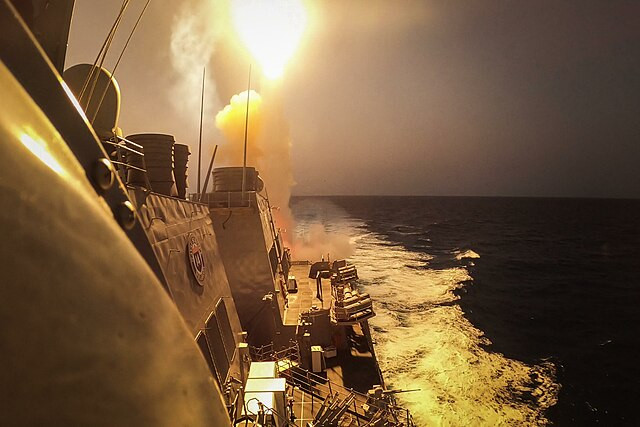The shipping industry has issued an urgent call for action in the Red Sea following the sinking of a second vessel by Yemen's Houthi militants. Leading industry groups emphasized the need for immediate measures to protect merchant shipping from escalating attacks. The Iran-aligned Houthi militants have been targeting this critical trade route, with over 70 attacks since November, including drone and missile strikes, vessel seizures, and the deaths of at least three seafarers.
In a joint statement, the world's top shipping associations condemned the assaults on innocent seafarers performing vital jobs. "These attacks must stop now," they said, urging influential states in the region to safeguard the seafarers and de-escalate the situation in the Red Sea. The Greek-owned Tutor coal carrier, which was attacked by Houthi militants last week, has been confirmed sunk, according to salvage firms.
The Tutor was hit by missiles and an explosive-laden remote-controlled boat on June 12. Despite international naval forces providing defensive support for ships navigating the Red Sea, the frequency and severity of attacks have surged. Insurance industry sources have raised concerns about the increasing use of attack drone boats by the Houthis, which pose a greater threat due to their ability to strike at the waterline and cause significant damage.
Munro Anderson, head of operations at marine war risk and insurance specialist Vessel Protect, highlighted the rise in Houthi strikes, noting that there have been ten attacks in June compared to five in May. The first successful use of an unmanned surface vessel represents a new challenge for commercial shipping within an already complex environment.
Insurance premiums for vessels sailing through the Red Sea have hovered close to 0.7% of the ship's value, down from around 1% earlier this year. However, with the sinking of a second ship, rates are expected to increase, adding significant costs to every voyage. Stephen Cotton, General Secretary of the International Transport Workers' Federation, emphasized the need for ships to divert around southern Africa to protect seafarers. He also called for proper escorts and shielding by naval forces to reduce the risks.
The Houthis have claimed their attacks are in solidarity with Palestinians in Gaza. Since November, they have launched numerous assaults on international shipping accessing the Suez Canal via the Red Sea. The UK-owned Rubymar was the first vessel sunk by the Houthis, followed by the Tutor. Last week, the Palau-flagged Verbena was also severely damaged, forcing sailors to abandon ship as it drifted in the Gulf of Aden.
Naval forces informed vessels in the area that the Liberia-flagged Tutor had sunk, with debris and evidence of oil at the site. The ship's manager, Evalend Shipping, did not respond to requests for comment. The Tutor was carrying 22 crew members from the Philippines, who were evacuated and repatriated. However, one crew member remains missing, according to the Philippines' Department of Migrant Workers.
The attacks have forced shipping firms to divert vessels away from the Red Sea and Suez Canal, opting for the longer route around the southern tip of Africa. This detour delays deliveries and increases freight costs, further straining the global supply chain. The Houthi drone and missile assaults have heightened concerns about the safety and security of maritime routes in the region.




